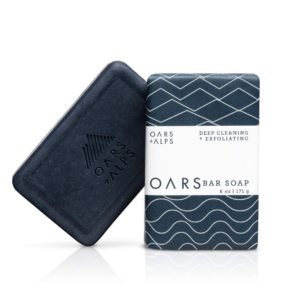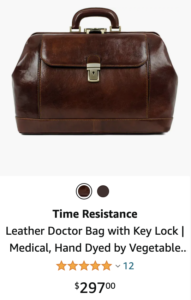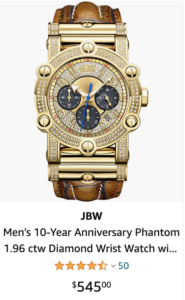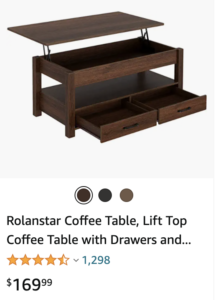Retailers are increasingly looking to online marketplaces as a way of getting their products in front of a wider audience and one marketplace that always springs to mind is Amazon.
Amazon Prime had a staggering 112 million U.S. users as of January 2020 and it has a global reach which is unmatched by any other marketplace.
It offers a huge opportunity in terms of customer reach but how do you know if selling on Amazon is profitable for you and whether it’s the right place for your product?
If you’re going to the trouble of setting up on Amazon, you want to make sure that your target customers are on there. Finding the correct platform to sell your products on is so important, as getting it right can mean lots of extra sales for your business.
Here I explore some of the common questions I hear about selling on Amazon and what you need to consider when deciding if it’s the right place for your products.
Amazon is where you go to buy cheap books or kitchen utensils isn’t it? Amazon has traditionally been seen by many premium brands as a discount retailer and for that reason many brands have been reluctant to sell on the platform because of the perceived damage it could do to the brand.
Another concern for some premium brands is the risk of hijackers and disreputable 3rd party sellers selling their products on Amazon and the negative impact it could have on customer perception.
Amazon has worked hard to try and reposition itself away from being a discount retailer and there are signs that their efforts are working. Increasing numbers of luxury brands are recognising the value of having a presence on Amazon and the ability to reach a huge consumer base (particularly important at a time when department stores and malls across the world are in lockdown).
Beauty brands are a good example of this, with many high end brands such as Stila, Elizabeth Arden and boutique brands like Oars + Alps reporting sales spikes during the pandemic.

Etsy is the obvious alternative to Amazon Handmade. Etsy has over 35 million buyers all of whom are looking for unique, craft products. Etsy can work out cheaper for some sellers as they charge lower commission fees, although they charge listing fees and the listings have expiry dates (unlike on Amazon Handmade). Many brands sell their products on both platforms so they get the best of both worlds.
ALTERNATIVE TO AMAZON:
If you have reservations about selling on Amazon, an alternative would be to sell through your own website where you will have complete control over your brand and the customer experience.
You could also consider more niche marketplaces such as Aftcra which specialises in American handmade goods. The amount of customers will be much smaller, but the customers there would be looking for products similar to yours.
Is Amazon the right place to sell my handmade products?
Before 2017 the answer would have been no. For a long time consumers associated Amazon with mass-produced generic products but then Amazon launched Handmade on Amazon.
Amazon Handmade is a store dedicated to customers looking for unique, handmade products. Amazon protects the quality of this category by requiring sellers to meet a strict list of criteria before applying to sell in the store. I’ve written an article which will help you work out whether Amazon Handmade is right for you.

Handmade leather goods are the kind of product that does really well on Amazon Handmade.
ALTERNATIVE TO AMAZON:
Etsy is the obvious alternative to Amazon Handmade. Etsy has over 35 million buyers all of whom are looking for unique, craft products. Etsy can work out cheaper for some sellers as they charge lower commission fees, although they charge listing fees and the listings have expiry dates (unlike on Amazon Handmade). Many brands sell their products on both platforms so they get the best of both worlds.
Is Amazon the right place to sell expensive products?
For a lot of consumers Amazon used to be the place they would go to find their favourite products at a lower cost than they could find in the shops.
Offering customers value for money is a top priority for Amazon and many sellers offer product discounts and vouchers in order to remain competitive.
This is one of the reasons that so many consumers use Amazon as a price check tool – a recent survey found that 66% of US consumers typically start their search for new products on Amazon, compared with one-fifth (20%) who start on a search engine such as Google.
So is it worth selling high ticket items on Amazon? Surprisingly yes it can be.
On Amazon you’ll find brands selling high end sports equipment, expensive technology, art and even memorabilia – all doing really well through the marketplace.
Because while there are plenty of bargain hunters on Amazon, there is an increasing number of shoppers who use Amazon to find exclusive products which might be harder to find in the shops.
The key is to make sure your products listings are fully optimised so they clearly show the quality of your product. That means high quality lifestyle images and infographics and persuasive copy so your customers are confident in the product they are buying.

There is a huge market for expensive watches on Amazon.
ALTERNATIVE TO AMAZON:
If you’re not convinced about Amazon, perhaps selling through your own website where you can target your specific customer and create a high end experience might be better for you. There are also a growing number of niche marketplaces which provide the opportunity to market your premium products to a more select audience. Marketplaces such as Houzz which stocks a wide range of homeware brands or Poshmark which showcases a diverse range of fashion labels are two good examples.
Is Amazon the right place to sell large products?
When you look at the higher FBA fees and storage fees that Amazon charges for large, oversize products and the cost of shipping big products, you might initially think that selling large products simply isn’t worth it. But don’t write it off straight away.
It all depends on your margins – if you’re selling a high priced item such as a high quality coffee table or arm chair for example then you may find that you are able to absorb the higher fees and still make a considerable profit.
The other thing to consider is that you will have far less competition selling large, oversize products as most sellers stick to small, light products so your advertising costs are likely to be less.
The important thing is to look carefully at the fees and work out if it is more economical to sell the products by FBA (fulfilled by Amazon) or FBM (fulfilled by merchant).

Brands selling larger items such as coffee tables often have a lot less competition on Amazon.
ALTERNATIVE TO AMAZON:
If selling your large products on Amazon just isn’t economical for your brand, then you may be better off selling via your own website where you won’t have to pay the same kind of fees. Another option to consider is Ebay which has a large customer base but with lower fees.
Final thoughts
Amazon is not the right platform for all brands and products but it’s worth considering if only because of the size of its huge global customer base. It’s changed a lot over the last few years – it’s shaken off its discount store origins and now caters to a much wider range of consumers with different tastes and budgets. If it’s not the right fit however, there are a number of other marketplaces that might be right for your products.
If you sell handmade goods and you’re curious about Amazon Handmade then check out my video which talks all about the opportunity:

I am a huge fan of this blog. I’ll return to read more soon. Thanks for creating it.